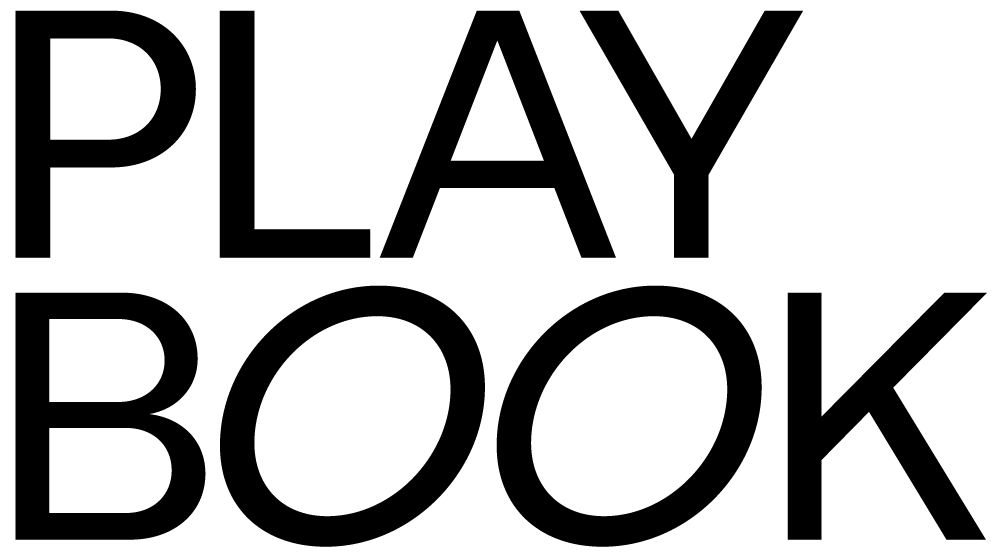Rafael Varona is a Peruvian illustrator freelancing out of Rotterdam for the likes of Disney, The Hague's Museum of Literature ("Literatuurmuseum"), and the World Health Organization. Sneak a peek into his creative life below, including his programming past and an ongoing personal project ten years in the making!
What got you into freelancing?
In my time in Berlin, when I made my diploma at the University of Arts Berlin, the illustration scene was not really evolved, and it was really considered, like, if you want to become an illustrator, you're probably going to be a comic artist or you're not going to make any money, so you better watch for alternatives. So I worked in a couple of agencies doing graphic design, but also, especially, programming.
So I coded and developed a lot, instead of really going into illustration, and then about eight years ago I decided to stop. Behance had just come up, and it was becoming really big, and I liked the platform because they encouraged you to create really beautiful presentations and animations of your work. So then I thought, I'm gonna give myself three months to make at least three presentations and see how they evolve, see if anything comes out of it.
And that was eight years ago.
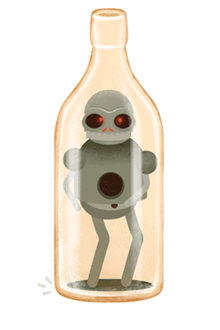
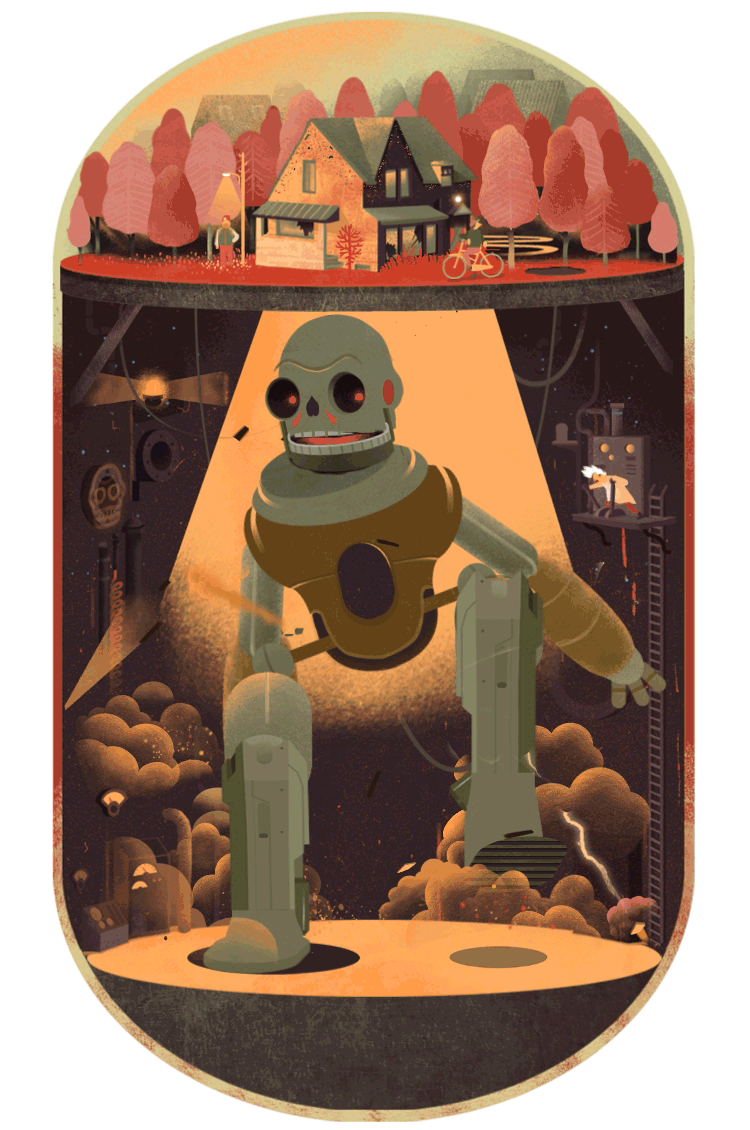
I made a couple of presentations there, including a series called Impossible Bottles, which was something that I really, really liked in terms of complexity. I love these animated worlds in vessels, like this containment sort of, these more complex worlds, so I published them. And luckily, they were featured, almost all of them, and then it just, you know, started to roll by itself basically.
So I did work for companies, and I published them on Behance or on Instagram, and then more and more came. So that's when I started doing freelancing, because I knew after about six months that I could live from it.
I love your Impossible Bottles series. Could you tell us more about what inspired that? How do you find time for passion projects amidst freelancing?
Yeah, yeah, I mean, I have two kids now, so there's more of this thinking that you have to save up, you have to make everything possible. So I’ve done a lot of jobs that weren't passion projects at all, but two years ago it was fifty-fifty without a doubt. These goosebump moments—when something really comes out of me, like, started as a spark of an idea, and then all of a sudden it's on paper, and then I put movement into it and the whole story starts—I love them, and I sought them much more before.
I suck at storytelling. I would never be good at making a two-minute animation movie, but a gif, for example, gives me limitations that I need. So with Impossible Bottles, I just know it has to be five seconds, it has to be this size, it should be within a vessel, and it should tell some sort of a story, but you don’t have much time for it. And that's why the Impossible Bottles are so interesting to me, because I’ll have an idea that I think would look cool as a loop, and I don't have to really take care of telling a whole long story about it. The limitations and the functionality of it are totally part of the artwork. And that's what I think what I love about the Impossible Bottles for me.
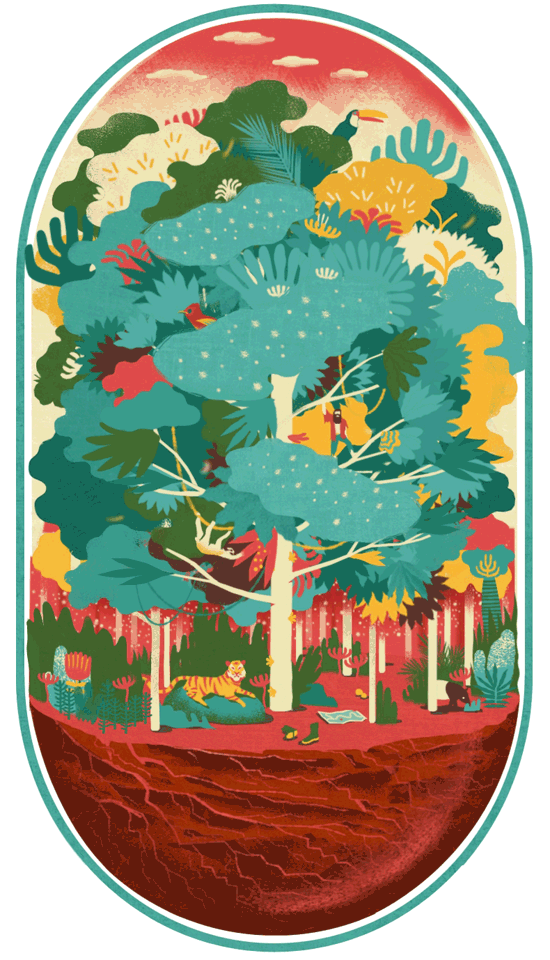
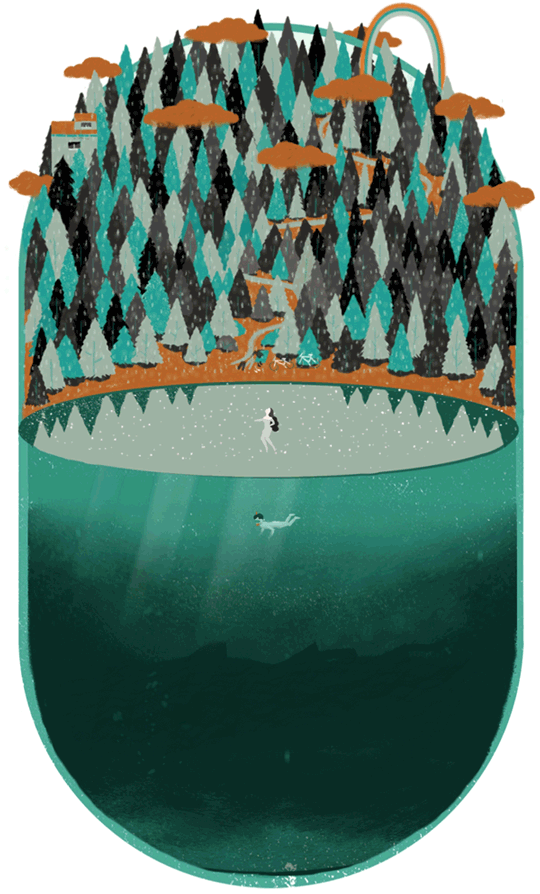
Much of your work feels very Romantic—this glimpse at nature and animals and our relationship with them. Has this always been an artistic soft spot for you?
I wouldn’t think nature is my main topic, but I was called a landscape designer or a playground artist by my friends. I’m interested in the relation between humans and bigger things like time, nature, so the beautiful thing about a loop, of course, is it puts us into this endless spiral, so the philosophy is already given. Of course, the easiest thing to do would be the Sisyphus sort of analogy—you show a guy rolling a stone up a hill, and then it goes down again. There’s loops all over life, and the more I can show that strength of nature, and of time, in comparison to the human being, the better. Nature will, of course, always be there, and not us.
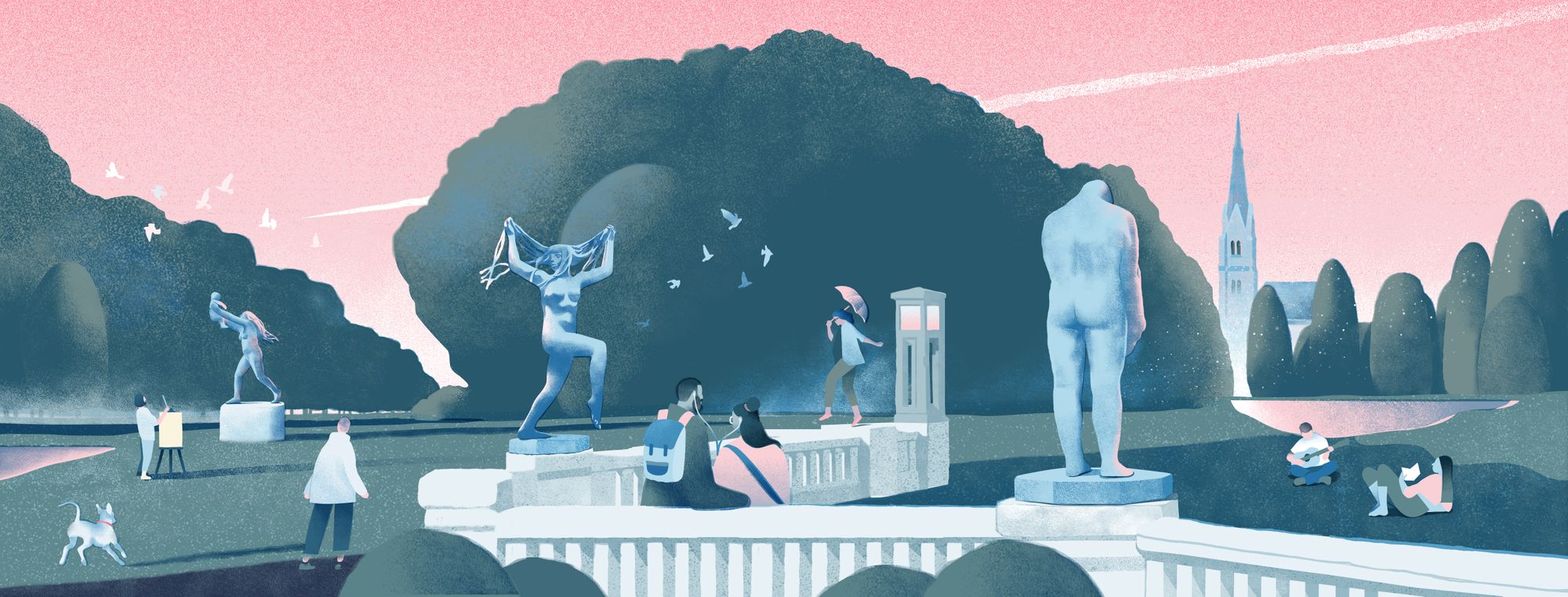
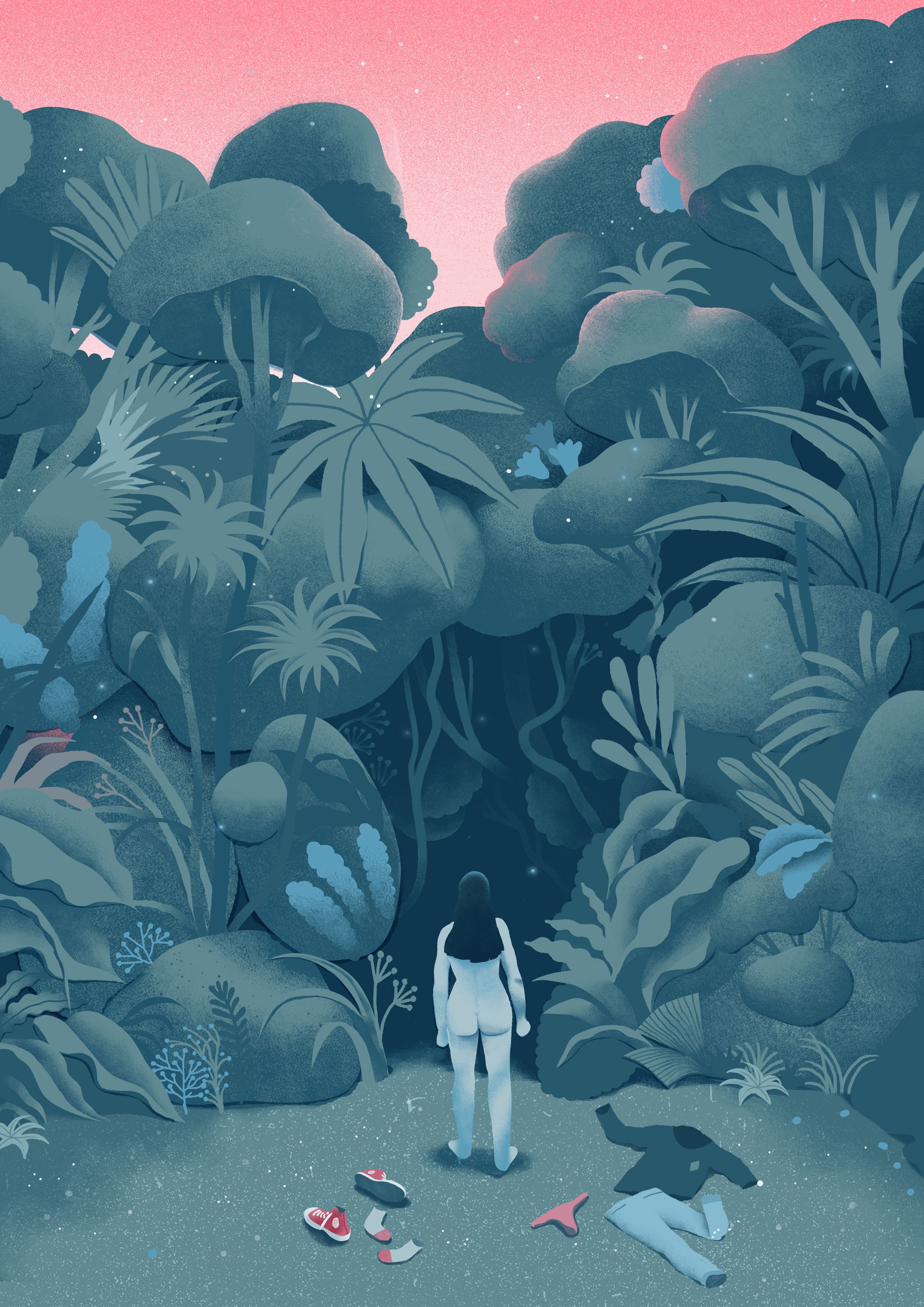
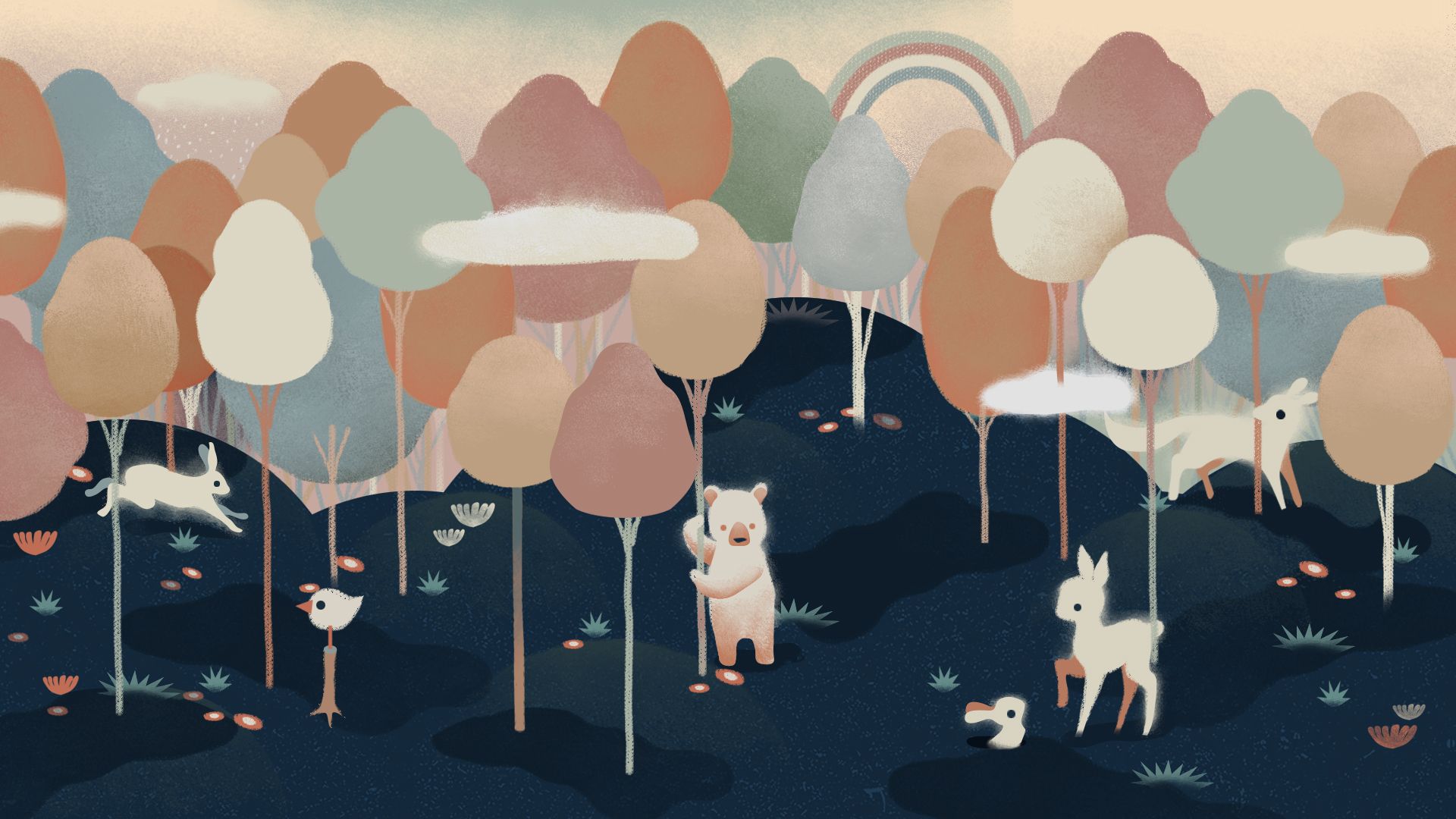
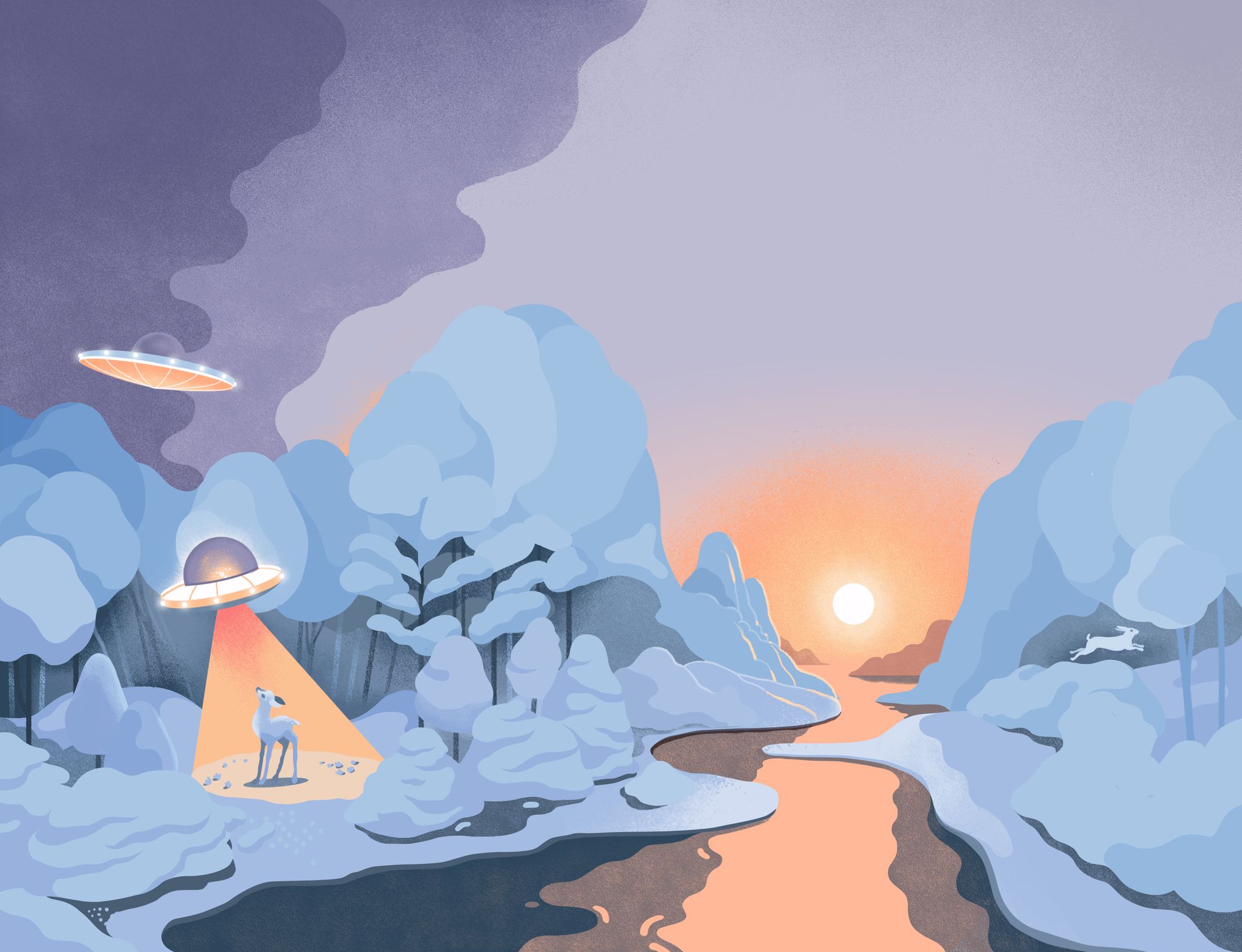
Companies love to show the philosophy behind their brands, but in a playful way, so I always try to push my work in that direction. In my work for companies, my work has to necessarily become generic in a way, so whatever I can do to put my stamp on it, while still making the client happy, the more fun it is for me.
You talk about putting your own stamp on your art. What artists do you look to for inspiration?
When it comes to nature paintings, it's David Hockney, of course—the landscapes that he creates and the colors are something that I copy like crazy. I learned a couple of years ago to steal colors and methods without being ashamed of it, like the way Hockney painted his landscapes, because otherwise, I can sometimes just go in circles.
The way I draw, I like to design using a silk screening technique in Photoshop, and that comes from a teacher I had in school, a French artist called Blexbolex. He certainly is a major inspiration for me, and was pretty much the whole six years in university. He made books like "Seasons" and "People"—must haves for every illustrator, in my opinion. Tom Haugomat is an illustrator that me and, like, a whole generation of illustrators love, even though we're all the same age. I also go to Golden Cosmos for inspiration, and lately the work of Cristina Daura has had a major impact.
There’s killer animators like rhymezlikedimez, creating incredible animations on this level that I hope to be at, at some point. And then there's Ghibli Studio; I could watch Spirited Away and Princess Mononoke in slow motion.
What is your favorite project you’ve been a part of?
It’s tough to say. I've worked a lot with Google, and some jobs were great, others, you know, just became corporate at the end, but Google was certainly always a good experience. I worked with Disney a lot lately, and that always has been fun—and funny that an animation company would hire an animator from the outside for work.
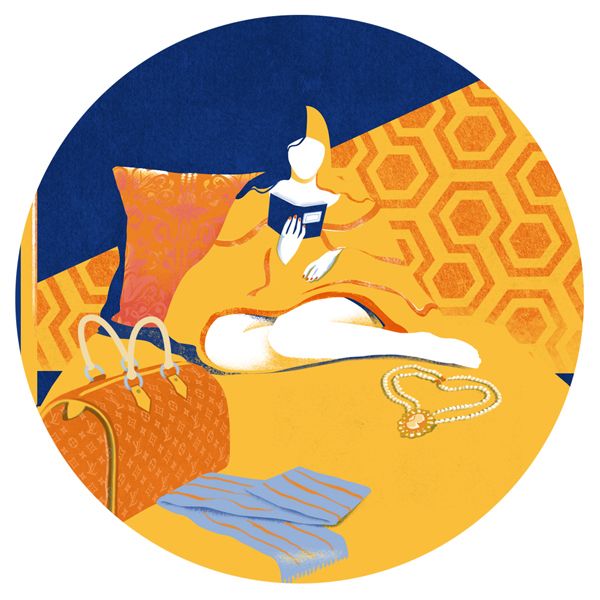

I do enjoy working a lot with fashion companies, because the brands are extremely focused on art anyways, meaning they have experienced art directors, so what they ask for is very specific and very inspired. I’ve worked with Louis Vuitton, and with a very nice eyewear company from Berlin called Mykita, and they always knew exactly what they wanted. I’d send a scribble and get back, like, No, that's exactly what we didn't want. But this is where we want to go. And at the end, the product was amazing. They took the best out of me.

Any exciting projects in the works?
My other projects, I unfortunately have NDAs, so I cannot really talk about them, but I’ve been working for Star Wars, doing loops for The Mandalorian—for the duration of the new season, but also for the old one. I’m very proud of it, so it hurts that I cannot share it yet.
I’m also doing a personal project that gives me goosebumps just thinking about it. Years ago, for my diploma, I created this puzzle, with the science behind it being that you can connect any of them along any edge to make a new image and new possibilities. It took me quite a long time; you have one years to make your diploma project, and I needed every day of the year to create enough artwork for 50 different pieces that you can connect on every level.
The thing is, it’s in my style from 10 years ago, so I can’t use it anymore. So what I'm going to do now is recreate it in my current style, hopefully by next summer, then bring it to stores here in Berlin, Rotterdam, Amsterdam, and see if they’re interested in selling it.
My digital work, my loops, as much as I love them, exist online, so basically every job that I do exists for five seconds, people look at it, and then they can just wash it away. It's not tangible in that way. And this puzzle is tangible, which certainly gets me excited.
Find more of Rafael's work on Dribbble, Instagram, Behance, and his website, https://www.rafaelvarona.com/. Keep an eye out for an upcoming addition to his Impossible Bottles series!
